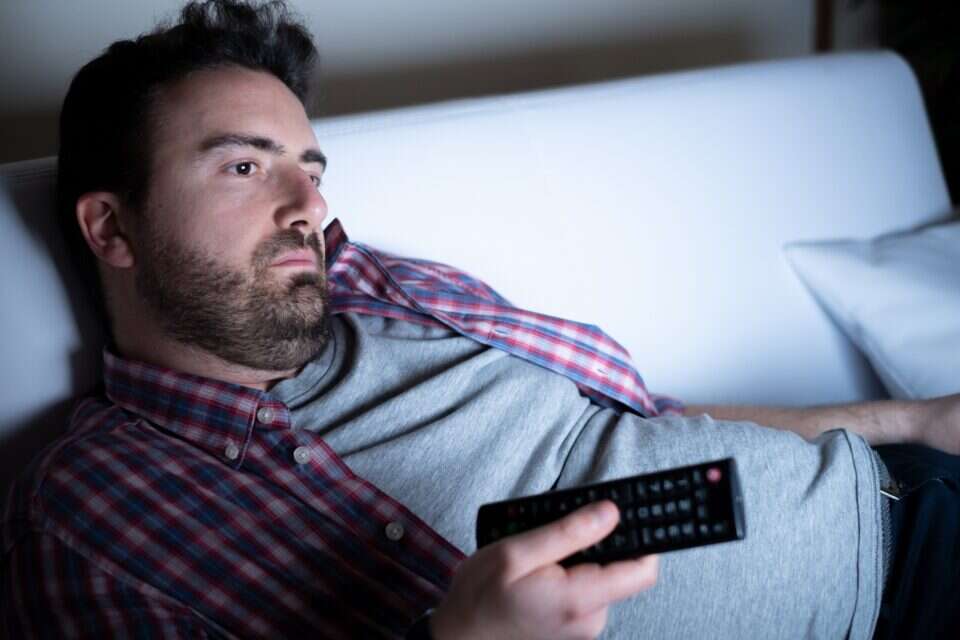Most of the light that comes from the sun is blue light, which makes it necessary in accustoming our bodies to sleepless and waking cycles. The same blue light is also emitted from computer screens, mobile phones, tablets and LED screens, so too much exposure to this type of light – which happens when we watch a lot of different screens – can damage the retina of the eye and impair the quality and length of our sleep.
However, a new study conducted at the University of Basel in Switzerland, published in the journal Nature Human Behavior, reveals that despite current assumptions, blue light does not damage our "internal clock." According to study leader psychologist Dr. Christine Bloom, scientists believe that the color of light has an effect on people's internal clock, because the cone cells in the eyes, the receptor cells found in the retina, also affect our internal clock—but there was no why.
Watching TV (illustrative), photo: Getty Images
As part of the study, Dr. Bloom and a team recruited 16 participants who were exposed to blue, yellow, and white lights for an hour before bedtime. The researchers designed the lights in such a way that they would activate the cone cells responsible for color in the retina in a controlled environment so that the ganglia in the eye, a cluster of neurons that serves as an intermediate station between the axon of the nerve coming from the brain and another neuron, would be similar in all three situations. Thus, the scientists were able to separate the properties of light that could affect the sleep-wake cycle.
"The most noticeable difference in the brightness and color of light from yellow to blue or vice versa occurred at sunset and sunrise, that is, at the beginning and end of the day," Dr. Bloom noted. "This suggests that this change has an effect on people's internal circadian rhythm, not necessarily on a particular color."
A Man Sleeping (Illustrative), Photo: Getty Images
The researchers concluded that there was no evidence that the change in light colors led to a change in people's sleep-wake cycle. "If anything, our study reinforced similar studies in the past, according to which ganglia play the most important role in this area," she concluded.
Despite the study's conclusions, the researchers did determine that it is recommended to reduce exposure to light that is wonderful from smartphones and other digital devices, no matter what color they are, before they go to bed, as this may affect the quality of their sleep.
Wrong? We'll fix it! If you find a mistake in the article, please share with us

